Keynote Talks
| Name | Affiliation | Title |
|---|---|---|
| Univ. Prof. Mag. Dr. Gabriele Kotsis |
Johannes Kepler Universität Linz Institut für Telekooperation AUSTRIA |
New Challenges for Universities in the Knowledge Triangle |
| Prof. Won Kim |
Gachon University KOREA |
Cloud Computing Architecture |
| Associate Professor Wenny Rahayu |
La Trobe University AUSTRALIA |
Data Integration in a Collaborative Decision Support System: a three-way collaboration effort between University, Industry, and International Standard Body |
| Professor A Min Tjoa | Technical University of Vienna AUSTRIA |
How the Cloud Computing Paradigm Could Shape the Future of Enterprise Information Processing |
| Professor Stephane Bressan | National University of Singapore |
Panel: The Future of Data (Management) |
New Challenges for Universities in the Knowledge Triangle
|
Univ. Prof. Mag. Dr. Gabriele Kotsis Institut für Telekooperation Johannes Kepler Universität Linz Altenberger Strasse 69, 4040 Linz, Austria Email: gabriele.kotsis_AT_jku.ac.at Website: http://www.tk.uni-linz.ac.at |
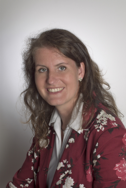
|
Abstract
In the past, research and education have been the major tasks and duties of Universities for centuries. Research was considered to be what we call today “basic research”, i.e. the systematic attempts to gain new insights and findings using scientific methods, education was the dissemination of the knowledge gained from research to the students. Only recently, i.e. in the last decade, aspects of exploitation of knowledge and technology transfer both, into industry as well as into society, came into play. Universities were seen as the sources of knowledge generation, industry should take up those ideas and transform them into practice in “innovation pipelines”. Universities had to justify and orient their research on the grand challenges of our modern societies, leading to “applied” research on the one hand and “marketing-like” activities of the Universities on the other hand. Also education changed with an increasing number of students entering Universities and new ways of teaching and learning such as distance education or blended learning. Nowadays, Universities are expected to be a central entity in the so called knowledge triangle, which described the process of exchange and the interplay between education, knowledge and innovation.
In this talk, we are going to reflect on the challenges and implications of those trends for Universities, their management and their researchers, especially in the field of ICT. From a University perspective, technology transfer to industry and awareness in the society and general public, are a key factor in profile shaping and can be a competitive advantage in recruiting both, best students as well as best researchers. From a management perspective, appropriate mechanisms and incentives must be put into place to best support such a strategy. From the researchers point of view, a balance must be found between the criteria and indicators of excellence in the various scientific communities and the engagement in dissemination activities.
Examples from the Johannes Kepler University, Linz, and the Austrian / European Academic landscape will illustrate potential solution paths. It is not the intention of this presentation to give answers to all those questions, but rather to set the ground for a discussion of possible strategies and solutions.
Short Biography
Gabriele Kotsis started her scientific career at the University of Vienna. She received her masters degree (1991, honored with the Award of the Austrian Computer Society), her PhD (1995, honored with the Heinz-Zemanek Preis) and the venia docendi in computer science (2000) from the University of Vienna. Before joining JKU Linz in October 2002, she was working as a researcher and teacher at the University of Vienna (1991-2001), at the Vienna University for Economics and Business Administration (2001) and at the Copenhagen Business School (2002).
Since 2002, Gabriele Kotsis is holding a full professor position in computer science at Johannes Kepler Universität Linz. She is chairing the Department of Telecooperation with a research focus in mobile computing, multimedia and hypermedia systems as well as cooperative and collaborative systems. Research in those areas includes the investigation of methods, techniques and tools for system development as well as evaluation and analysis with focus on performance evaluation. The Department is participating in numerous national and international projects, including CRUISE, a European network of excellence in sensor networks, EuroFGI, a network of excellence on Future Generation Internet, the AustrianGrid project, or ModelCVS a project on semantics in SW and system modelling, and actively involved in the organisation of international conferences, including for example iiWAS and MoMM.
Prof. Kotsis is author of numerous publications in international conferences
and journals and is co-editor of several books. She is member of the OCG and the ACM. From April 2003 to April 2007 she was president of the Austrian Computer Society.
Since October 2008 she is Vice Rector for Research at the Johannes Kepler University, Linz.
Cloud Computing Architecture
|
Prof. Won Kim Lifetime Professor and IT Vice President Gachon University KOREA Email: wonkimtx_AT_gmail.com |
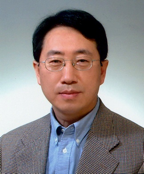
|
Abstract
Various aspects of cloud computing architecture will be discussed. These includes virtualization architecture, cloud service architecture, cloud functional architecture, and scalability architecture.
Short Biography
Won Kim is a Vice President of Gachon University (formerly Kyungwon University) in S. Korea. He served as Chair of ACM SIGKDD and ACM SIGMOD, and Editor-in-Chief of ACM Transactions on Internet Technology and ACM Transactions on Database Systems. He is one of the pioneers of object-oriented database systems, object-relational database systems, and federated database systems. His current interests include social media and safer use of the Internet.
Data Integration in a Collaborative Decision Support System: a three-way collaboration effort between University, Industry, and International Standard Body
|
Associate Professor Wenny Rahayu Head of DEKM Rearch Lab La Trobe University AUSTRALIA Email: W.Rahayu_AT_latrobe.edu.au Website: http://www.latrobe.edu.au |
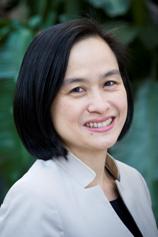
|
Abstract
Fast and accurate information exchange in the areas relating to spatial and temporal information, such as in aviation information management or disaster decision support systems, are of vital importance due to financial and more importantly safety implications. The problem that impedes rapid and correct decision-making is that information is often segregated in many different formats and domains, and integrating them has been recognised as one of the major problems. For example, in the aviation industry, weather data given to flight en-route has different formats and standards from those of the airport notification messages. The fact that messages are exchanged using different standards has been an inherent problem in data integration in many spatial temporal domains. The solution is to provide seamless data integration so that a sequence of information can be analysed 'on the fly'.
Our aim is to develop an integration method for data that comes from different domains that operationally need to interact together. We especially focus on those domains that have temporal and spatial characteristics as their main properties. For example, in a flight plan from Melbourne to London which comprises of multiple international airspace segments, a pilot can get an integrated view of the flight route with the weather forecast and airport notifications at each segment. This is only achievable if flight route, airport notifications, and weather forecast at each segment are integrated in a spatial temporal system.
There has been a huge effort in the recent years to establish a standard vocabulary and definitions for the areas where a collaborative decision support is required. This effort ultimately needs the participation of the industry stake-holders and the international standard bodies who will host and maintain the standards.
In this talk, we will share our team experiences in performing large data integration and migration for the Australian aeronautical reference data as part of an effort to establish a collaborative decision support system. As part of the effort, we have also been working with the international standard body - Open Geospatial Consortium (OGC) USA in the exploration of a standard for the integration of weather information into the aviation information systems.
Short Biography
Wenny Rahayu is currently an Associate Professor and the Head of Data Engineering and Knowledge Management research at the Department of Computer Science and Computer Engineering La Trobe University. The main focus of her research is the integration and consolidation of heterogeneous data and systems to support a collaborative environment within a highly data-rich environment. To date, she has been the principle investigator or one of the chief investigators of 2 ARC (Australian Research Council) Industry Linkages, Large Industry collaboration grants, International grants (Japan JSPS and Australia Indonesia AIGRP), International Standard Bodies such as Open Geospatial Consortium (OGC), VPAC (Victoria Partnership for Advanced Computing), and the AAS (Australia Academy of Science). In the last 10 years, she has published two authored books, three edited books and more than 100 research papers in international journals and proceedings. She has supervised to completion 10 PhDs, around 30 Honours, and 10 Masters students.
How the Cloud Computing Paradigm Could Shape the Future of Enterprise Information Processing
| Professor A. Min Tjoa Institute of Software, Technology and Interactive Systems Vienna University of Technology AUSTRIA Email: Amin_AT_ifs.tuwien.ac.at Website: http://www.ifs.tuwien.ac.at/tjoa |
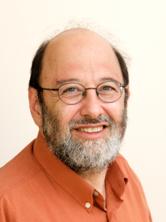 |
Abstract
Cloud Computing as the new delivery model for IT services is aiming at envisioning the abstraction of IT infrastructure and addressing the complexities of servers, applications, data and heterogeneous platforms. Nowadays the Cloud Computing Paradigm is being utilized by many small and medium enterprises that will get most of their computing resources from external providers. On the other hand the number of Cloud Services is rapidly growing with the potential of enabling the creation of customized based cloud services which address even sophisticated complex business and organizational requirements.
Cloud Computing technology is very often considered just as the next logical evolutionary step of technologies such as grid computing, services-oriented architecture, and virtualization. In our opinion Cloud Computing has overtaken the success of its “ancestors” with very specific characteristics of its own. The unique technological and business advantages of this paradigm are becoming increasingly evident.
In this talk the technical, economical, and environmental aspects of Cloud Computing will be investigated. A special focus will be laid on how the paradigm shift from local service-farms to Cloud-based solutions will shape a new quality of future Enterprise Information Processing approaches and technologies.
Short Biography
Professor Dr A Min Tjoa has been a full professor since 1994 and director of the Institute of Software Technology and Interactive Systems at the Vienna University of Technology. He is currently also the head of the Austrian National Competence Center for Security Research. He was visiting professor at the Universities of Zurich, Kyushu and Wroclaw (Poland) and at the Technical Universities of Prague and Lausanne (Switzerland). From 1999 to 2003, he was the president of the Austrian Computer Society. He is vice-chairperson of the IFIP Technical Committee for Information Systems and vice-chairperson of the IFIP Working Group on Enterprise Information Systems (WG 8.9). He has served as chairman of several international conferences including the IEEE Int. Conf. on Distributed Computing Systems (ICDCS), European Software Engineering Conference (ESEC), ACM SIGSOFT Symposium on the Foundations of Software Engineering (FSE), the International Conference on Database and Expert Systems Applications (DEXA), the International Conference on Electronic Commerce and Web Technologies (EC-Web). He was Honorary Chairman of the International Conference on Very Large Databases (VLDB 2007). Since 2009, he is the Austrian delegate for the United Nations' Commission on Science and Technology for Development (CSTD). In 2011 he received the Honorary Doctorate degree of the Czech Technical University in Prague and a Honorary Professor degree from the University of Hue (Vietnam).
His current research focus areas are data warehousing, grid computing, semantic web, security, and personal information management systems. He has published more than 150 peer reviewed articles in journals and conferences. He is author and editor of more than 20 books.
Panel: The Future of Data (Management)
Professor Stephane Bressan |
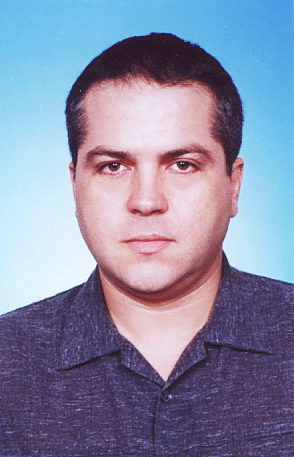 |
Abstract
OrangeNeck Private Limited crowd-sources the collection of live data about the Orange-necked Partridge of Cambodia and Vietnam, stored the data on the Cloud and distribute the data on the World Wide Web using with contextualization including location-based search, user tagging and semantic web technology. It gives integrated access on all screens: desktops, mobile devices, internet television and gaming consoles.
The collection, management, distribution and access, and contextualization of data seem to be moving from a proprietary and corporate activity to a boundary-less collective one. This raises several strategic questions related not only to technology but also to business models and policy.
In this panel the panelists will try and propose a crystal ball view of the future of data management in general and will choose to highlight the technology, business or policy issues that are most likely to influence, from their respective points of view, the future paradigms for the management of data.
Suggested topics are: data formats and data models, crowd sourcing, reliability of data, price of data (free and open), cloud storage, linked data, semantic web etc.
Short Biography
Stephane Bressan is Associate Professor in the Computer Science department of the School of Computing (SoC) at the National University of Singapore (NUS) . He joined the National University of Singapore in 1998. He is also adjunct Associate Professor at Malaysia University of Science and Technology (MUST) since 2004 .
He graduated in 1987 with a degree in Computer Science, Electronics and Process Automation from the Ecole Universitaire D'Ingenieurs de Lille (France) and received his Master and his Ph.D. in Computer Science in 1988 and 1992, respectively, from the Laboratoire D'informatique Fondamentale of the University of Lille .
In 1990, Stephane joined the European Computer-industry Research Centre (ECRC) of Bull, ICL, and Siemens in Munich ( Germany ). From 1996 to 1998, he was research associate at the Sloan School of Management of the Massachusetts Institute of Technology (MIT).
Stephane's research interest is the integration and management of information from heterogeneous, distributed and autonomous information sources . In his current projects he investigates the integration and privacy preservation of information in Web2.0 applications, and the integration and management of business process definitions.
Stephane is author and co-author of more than 100 papers. His results have been published and presented at various occasions including the 1995 G7 summit on the Information Society, the 1995, 1997 and 2000 ACM-SIGMOD conference on the management of data, the 1996, 2000 and 2008 conference on Extending DataBase Technology, the 2002 ICDE international conference on data engineering and the 2002, 2003, 2004, 2005 and 2007 DEXA conference on Database and Expert Systems Applications.
Stephane contributes to the dissemination of results in and outside his research community in participating in the organization of international conferences, workshops, and in contributing to the editorial boards of journals. He is member of program and editorial committees of several conferences and journals including the 2002 ACM SIGMOD conference on the management of data, the 2003 and 2008 ICDT international conference on database theory and the 2004 VLDB international conference on very large databases. He has been the program committee chair of the 1999 to 2005 iiWAS international conferences, of the 2006 DEXA international conference and co-general chair of the 2005 VLDB XSym symposium. He has been solicited to act as an external reviewer for numerous journals, conferences, and workshops.
Stephane is member of the XML working group of the Singapore Information Technology Standards Committee (ITSC) and advisory member of the executive committee of the XML user group of Singapore (XMLone). He is also co-founder of Geofoto Pte Ltd and was adviser to the founders of Netxylem Pte Ltd.
